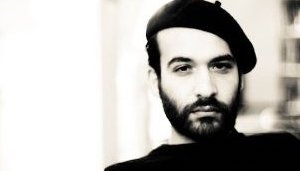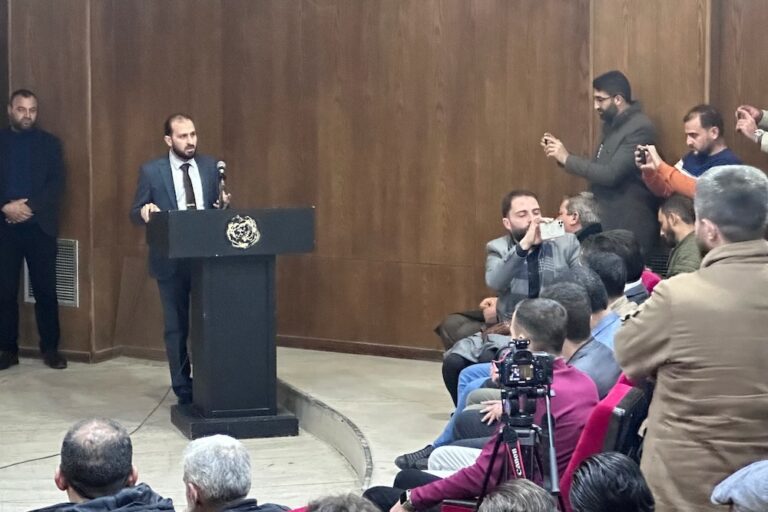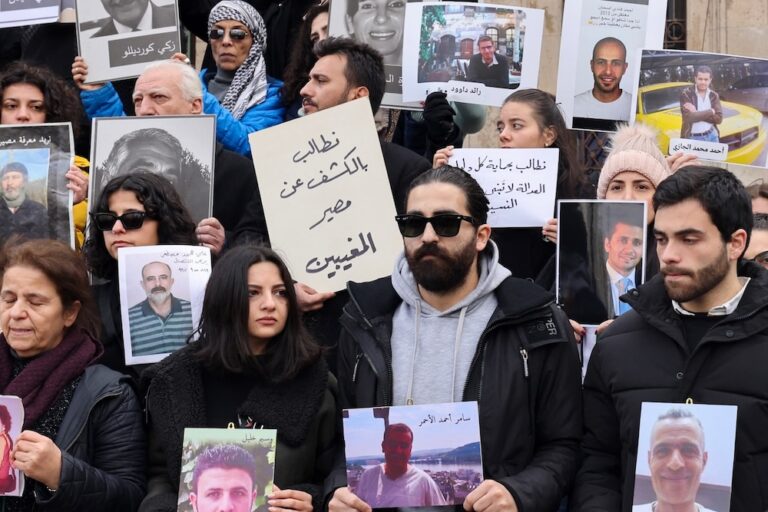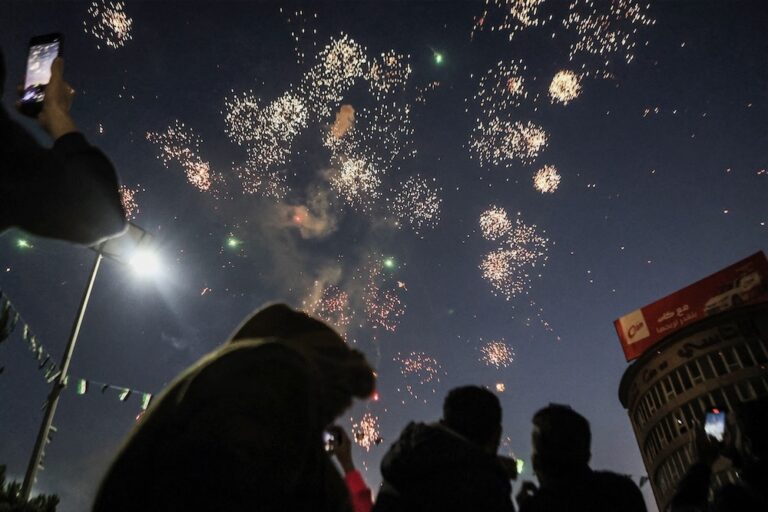Housam Al-Mosilli, a respected writer, journalist, translator and researcher. He lived in Damascus at the start of the conflict, and following three arrests, detention and torture by the Syrian security forces for covering anti-government demonstrations; he fled the country in 2012. Mosilli talks to PEN about the life of a writer in exile, his new life and leaving Syria.
This statement was originally published on pen-international.org on 13 May 2016.
As the conflict in Syria continues into its fifth year, writers and journalists are increasingly facing danger from all sides. Stuck between pro-government forces, rebel groups and ISIS, Syria now has one of the highest death tolls for writers and journalists in the world. Since the start of the conflict, over 90 writers and journalists have been killed, while many others have been arbitrarily detained, tortured or have disappeared. Faced with such violence, many writers have been forced to flee the country, with dozens seeking protection and assistance from PEN International and its partner organisation International Cities Of Refuge Network (ICORN) . To mark five years since the start of the Syrian conflict, PEN International is publishing a series of interviews with Syrian writers and journalists in its Syria’s Voices series. The second in this series is an interview with Housam Al-Mosilli, a respected writer, journalist, translator and researcher. He lived in Damascus at the start of the conflict, and following three arrests, detention and torture by the Syrian security forces for covering anti-government demonstrations; he fled the country in 2012. Mosilli talks to PEN about life of a writer in exile, his new life and leaving Syria.
PEN: It’s now five years since the Syrian conflict began and in that time 11.5% of the country’s population have been killed or injured according to recent report by Syrian Centre for Policy Research. Close to 5 million Syrians have fled to neighbouring countries and increasingly to Europe, where they are facing increasing hostility. For many watching the conflict the story looks very confusing. What has the war meant for you?
Housam: Starting with the definition of what’s happening in Syria – from my perspective I consider it as a revolution. The revolution of the century. I believe that history will compare it perhaps with the French revolution because you can see the different types of war in Syria. This is a proxy war and a civil war. It started as a civil revolution. Even Bashar al-Assad stated this. The Syrian people were civilian demonstrators in the first six months, and yet [later] they were forced to carry arms to defend themselves and their homes and families. And now we’re having radical Islamic groups like ISIS, al-Nusra, Hezbollah, the Sunni and Shia radicals. It’s a hugely complex situation. For me, I’m still sad for those who are still in prison. I know what happens to them and yet it’s very complicated to describe it even for me. It has affected everybody in the whole world; we are talking about it in Europe, America, Asia, in Africa. Everyone is talking about what’s happening in Syria.
PEN: What do you think about EU response to the refugee crisis?
Housam: There are two points of view when you look at EU response. On the one hand they are trying to show that they care about helping the refugees and talking about how we are all one humanity and one global community and on the other hand we see that for instance the UK saying they will accept refugees but then not applying it. The same goes for the USA. You can see now that only maybe Germany and Sweden here… So there is a lot of … I don’t know if you can say ‘lying to public opinion’… they say big words but don’t apply it. The main problem is not where to put refugees, but how to give them safe haven. What they really want is their own homes in Syria. Where can we put refugees and how can close culture gaps between them and locals. The problem is how to get rid of the terrorism in Syria and then people will go back.
PEN: You were arrested three times and repeatedly tortured by the Syrian security forces for covering anti-government demonstrations. At what point did you realise you had to leave Syria? When it came to it, was it an easy decision?
Housam: I left after the last time I was arrested. I had been in court for one day and had been tortured nearly to death for a whole night, and they wouldn’t stop. I spent almost a month and half in bed after I was released. My family got a lot of threats. They pushed me to leave. They said you won’t be safe here. The last three months before I left, I wasn’t living at home. I was moving between friends’ houses because the authorities were asking about me. If you are wanted by one security branch, the other won’t know you are wanted and so if you are released from one, the other will arrest you. It’s a circle and it never ends. So I took this decision, I have to say a very difficult decision. Part of me wanted to stay and the other part wanted to leave. When you leave, you are leaving all of your memories. I was thinking that if I went out of Syria now, I may have no chance to go back. This was the tough thing – the toughest – I think. I’m still thinking about it. I always will. I want to be buried in my country.
PEN: You are a writer, journalist, poet, researcher and translator. Do you find that you can talk about Syria and your experiences over the last five years more easily in one of these forms than the others?
Housam: It depends on the topic. For example, I’m writing a novel. There are certain things I want to write about that will work better as a novel than a research piece, as it will be easier to express things emotionally. But when you need to document facts, you have to use research methods. It’s very important to have these different aspects. You can talk about the suffering of children in Syria emotionally in a poem or in a literary text as powerfully sometimes as describing it in numbers. For example, there are 400,000 children out of schools. And those are only the ones in Lebanon and Turkey.
PEN: Your writing has caused such enormous upheavals in your life, including in the years since leaving Syria. Has this changed your relationship with your work?
Housam: It’s established who I am and made me close to writing. This is who I am and the path that I have chosen in my life. Before being a professional writer – before living as a writer, I worked in several different fields. Now, I think that it was an important experience to work in other fields and to put it in writing. I feel like I am using all of my experience in my writing and without writing, it would have been a wasted experience.
PEN: Your poem ‘Diary of the Silent’, published in a recent issue of the Dissident blog is beautiful. In it you explore the idea that not only did you leave Syria, but that Syria left you. What happens to your understanding of home when you are forced to flee?
Housam: This is one of the few things that make me still feel close to my home. I feel that I am always having this conflict of being attached to my home, and yet I’m now out of it and I have to go on with my life in Sweden. Leaving Syria and getting here has been a long journey and I have to cope with it and always remember that I am Syrian. I blame myself and my country for letting my country go. I recently wrote an article about an amazing and skilled football player, Zlatan Ibrahimović, in the Swedish national team. And how he didn’t manage to get to the World Cup because the other players were not good enough. In a similar way, sometimes I blame myself and others about what is happening in Syria, because maybe if we were all – the Syrians – reaching for freedom and democracy, we would not have been displaced or killed or tortured. It feels like fighting alone. But of course we are not alone.
PEN: When you left Syria did you feel that you were leaving permanently or did you feel like you would return one day? Has that changed in the four years since you have left?
Housam: Since I left Syria, I have been thinking about that. Politically- speaking, the Assad regime is strong. Most governments are supporting him, so if he wins or stays it will be impossible for me to go back. I feel like I am still depending on people in Syria who are still fighting him. It’s those people who will bring us back to the country. Not the governments, not political groups, it’s the Syrian people, with the support of the people of the world, of course. I’m thinking about it now and it’s starting to vanish from my mind, the idea of going back to the country. It’s my dream, but you see what’s happening in Geneva and UN [Human Rights] council. It’s become very complicated to go back. And now with the terrorists groups emerging, it’s even more complicated.
PEN: Do you feel that in order to settle into your new life, you have to banish the idea of going back?
Housam: I’m trying to separate the two. I’m living in the moment in Sweden and I must keep going, keep doing my work, so that if and when I go back to my country, at least I will go back having done something good. I will go back to my country and people will say that I did something good.
PEN: Do you still have friends or family who are still in Syria?
Housam: Yes, of course. Half of my family are in Germany and half still in Syria. A lot of friends – actually not a lot when you think about it – because every now and again you’ll hear that they’ve travelled to EU. I spend six hours daily just watching the news. So, I feel I’m still there. I can tell you exactly what’s happening.
PEN: What do you hear from your friends or family who are still in Syria?
Housam: Most of the stories coming out of Syria are usually the same terrible stories. ‘Oh do you remember this guy, unfortunately they killed him’ or ‘arrested him’ or ‘people who can’t afford to pay for sugar or medicine’, or ‘we haven’t seen electricity for 3-4 months a year’. Terrible stories – and very hard to get used to. It’s not normal to get used to these terrible stories.
PEN: Recently British parliaments voted against accepting 3,000 unaccompanied child refugees from Syria. When you hear that and knowing everything you do about situation in Syria, do you feel that the international community is failing the Syrian refugees?
Housam: It’s all just theatrics, talk of helping refugees. For example, in London a week ago, the mayor opened recreation of the destroyed Arch of Triumph in Palmyra, in London’s Trafalgar Square. They had a very big festival, and the mayor said: these ruins are from Syria, we’re standing in solidarity with the people of Syria, we are saving their history and heritage. And at the very same time they are rejecting Syrian children. It’s a farcical show. Acting like you care about humanity without caring about the humans themselves. I get this from normal people in Sweden too. They always say yes we know our government will go and say they are saving the world but they will refuse to help a child go to school. We have to separate this from the people of the country. We can’t say the British people are doing this; it is the government of Britain. But this attitude by these governments, will lead lot of problems and tensions between the new arrivals and refugees and locals.
PEN: What can writers around the world do in a situation like this?
Housam: I’m trying to analyse this myself. Everywhere I go, I write. Over the last two months, I’ve been invited to a lot of events in Sweden and I’ve been asked a lot of questions like this. I always say that we should not believe what the Syrian government is saying, we should listen to the Syrian people. You have to separate the main problem; we have a problem with generalising. Like the Swedish are mean or Syrians are refugees or something like this. It’s just labelling and it won’t do any good. You want to solve the problem you have to look at the small pieces to find the solution. I’m trying to write about it. I’m always telling people that we are Syrians – we hold the nationality – but we are not the same. For example, in Istanbul a taxi drivers will say ‘oh you’re not Syrian you’re Italian or from Spain’, I’ll ask why and they’ll say ‘because you don’t look Syrian’. You ask how Syrian looks and they say they have no idea. You say, ‘should I be darker?’ and they say, ‘No, those are from Egypt’. The problem comes from accepting the media propaganda without thinking about it. You have to make people think.
PEN: What do you miss the most about Syria?
Housam: Oh…actually there are a lot of things. There are some places I was raised in and places that I always hang out with my closest friends. One of them was – well, we used to call it – the Languages Cafeteria because it was in the university, related to the Languages Institute. I spent the most beautiful days of my life there with a group of my closest friends. We spent maybe four or five years going there on a daily basis. And I miss the place and I miss the people. There was a boy working there, Muhammed¸ who was very close to the owner. He was a good friend to us; we thought of him as family. And yet I remember in 2013, a friend sent me a photo from the cafeteria and I asked where is Muhammed? He said that unfortunately he had been killed on his way home. It was very sad for me. I miss this place a lot and the people there and, I miss Mohammed of course. It was this group of friends who now have all of them have been arrested by the regime. We are a group of writers, poets and TV workers. The other university students would treat us as the intellectuals of the university. Of course when you think about it it’s the responsibility of a cultural worker or intellectual or writer to think about the people. If you think you are living a good life so you don’t have to protest against an oppressive regime – this would be a disaster for me and my conscience. I was living a good life of course, I had my car and home and everything. And I was becoming somehow famous – a star in some communities. But then I would drive in my car, and minutes from where I would go drinking with my friends, you would find people sleeping in the streets. So it wasn’t fair. So that’s why I decided to take the side of the people instead of the side of the regime. When they arrested me they asked me, ‘What do you want, you have everything? If you want we can help you’. They offered me my own TV show and I said ‘Yeah, but who will watch them?’ I don’t want people to watch them and curse me.



